

Instituto Nacional de Estadística de Bolivia. Nature\'s Board Game" Nature's board game encourages kids to learn about nature while creating their own board game.

In this indoor game, kids can learn about saving forests, recycling, or other nature-inspired themes. Food is Free: Growing Food & Community in the Front Yard! Citronella: un repelente de mosquitos natural. La citronella despide una fragancia que resulta particularmente desagradable para los mosquitos, siendo así un buen repelente natural.
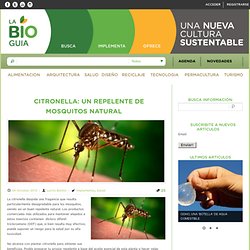
Los productos comerciales más utilizados para mantener alejados a estos insectos contienen dicloro difenil-tricloroetano (DDT) que, si bien resulta muy efectivo, puede suponer un riesgo para la salud por su alta toxicidad. No alcanza con plantar citronella para obtener sus beneficios. Podés preparar tu propio repelente a base del aceite esencial de esta planta o hacer velas para reemplazar los productos químicos.
Repelente casero No es aconsejable aplicar el aceite esencial de citronella puro sobre la piel, ya que puede ser irritante. Simplemente tenés que mezclar unas gotas de aceite esencial de citronella con el diluyente que hayas elegido y conservarlo en un recipiente. Si vas a plantar citronella, tené en cuenta que, si bien se adapta a la mayoría de los suelos, no tolera demasiado la humedad. What.Where.How. We place an Earthchild Facilitator into the existing structure of a school and with the support of the Earthchild team, teachers, parents, partnering organizations and volunteers, the facilitators introduce and maintain the programme.

Our programme compliments the academic curriculum, and learners are given the opportunity to develop practical skills that can be applied at school and integrated into their lives. Saving Tigers: local knowledge and conservation. Our Planet Local series travels to Nepal, where guest author Narayan Dhakal explains how local knowledge can help save tigers, demonstrating that localization is a key element of successful biodiversity conservation around the world.
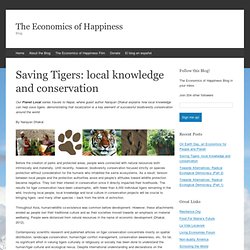
By Narayan Dhakal Before the creation of parks and protected areas, people were connected with natural resources both intrinsically and materially. Until recently, however, biodiversity conservation focused strictly on species protection without consideration for the humans who inhabited the same ecosystems. As a result, tension between local people and the protection authorities arose and people’s attitudes toward wildlife protection became negative. Today's Resolution: Plan a Labyrinth Walk. How to Apply for a National Geographic Student Expedition. Applications are carefully reviewed by our Admissions Committee, and students are selected on the basis of their maturity, enthusiasm, motivation, and willingness to live and participate constructively in a supportive community environment.

We make our best effort to act on each application within one to two business days of the date when the application is completed. Because we anticipate that we will receive more applications than we are able to accept, early applicants will have the best chance of being accepted to their first choice of expedition. We will temporarily reserve a space for an applicant in a particular expedition upon receipt of the Application Form and a $700 Application Deposit provided by credit card or by check. For applications received after March 15, final payment is due within five days after the initial deposit is made.
STEP 1: APPLICATION FORM & DEPOSIT Complete and submit the online Application Form. National Geographic Student Expeditions. It only takes a little digging to find that there is wonder—big and small—all around the world.
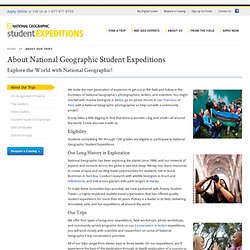
Come discover it with us. Eligibility Students completing 9th through 12th grades are eligible to participate in National Geographic Student Expeditions. www.childrenandnature.org/downloads/NTN_eguide.pdf. www.childrenandnature.org/downloads/FamilyBonding_En_2014.pdf. www.childrenandnature.org/downloads/EducationSynthesisJan2012Final.pdf. www.childrenandnature.org/downloads/GrandIdeasInNature_bookmark.pdf. www.childrenandnature.org/downloads/NLNCurriculum2013FINAL.pdf.
www.childrenandnature.org/downloads/CECCNNWorldwideResearch.pdf. www.childrenandnature.org/downloads/WWCActGuide.pdf. Frankenstein’s Other Brain. Did you ever wonder what would have happened to the monster in Mary Shelly’s classic horror tale, Frankenstein if he hadn’t been mistakenly given the abnormal brain, but instead was given, as the good doctor intended, the brain of a genius?

Other than being an interesting question, you might well ask, what does this have to do with anything? Well, I was thinking about the fact that we have created a kind of monster of our own in the industrial juggernaut that is now on the lose and running around the planet threatening the safety of our whole (and I do mean whole) family. Mindlessly oblivious to the consequences of its actions, the industrial, commercial, economic system is doing what it was designed to do: pursuing profit.
Certainly nothing wrong with that. The profit motive has brought us to great heights of civilization and wealth, though not for everyone. Well, the invisible hand of the market is now firmly around the throat of Mother Earth. www.peec.org/pdfs/2014-ppp. Tokai Arboretum, Cape Town - Kids Of Nature. Let us inspire you with some entertaining stories & useful tips...
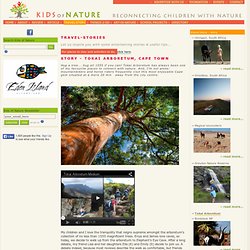
For places to stay and activities to do, click here. Hug a tree... hug all 1555 if you can! Tokai Arboretum has always been one of my favourite places to connect with nature. And, I’m not alone: mountainbikers and horse riders frequently visit this most enjoyable Cape gem situated at a mere 20 min away from the city centre. My children and I love the tranquility that reigns supreme amongst the arboretum’s collection of no less than 1555 magnificent trees. The route starts at Lister’s Place, the arboretum’s tea room, and passes through pine forests before opening into exquisite montane fynbos that graces the slopes of the Constantiaberg.
It doesn’t take long before little Ella takes the lead, followed closely by the others. Inspiring stories at the Cape Town Eco Film Festival – Blog – Two Oceans Aquarium Cape Town, South Africa. 26 March 2014 The Cape Town Eco Film Festival has compiled a great line-up of short and feature-length films covering a range of environmental topics.
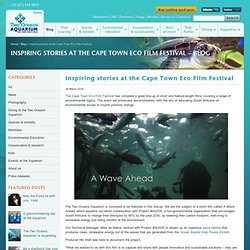
The event will showcase documentaries, with the aim of educating South Africans on environmental issues to inspire positive change.